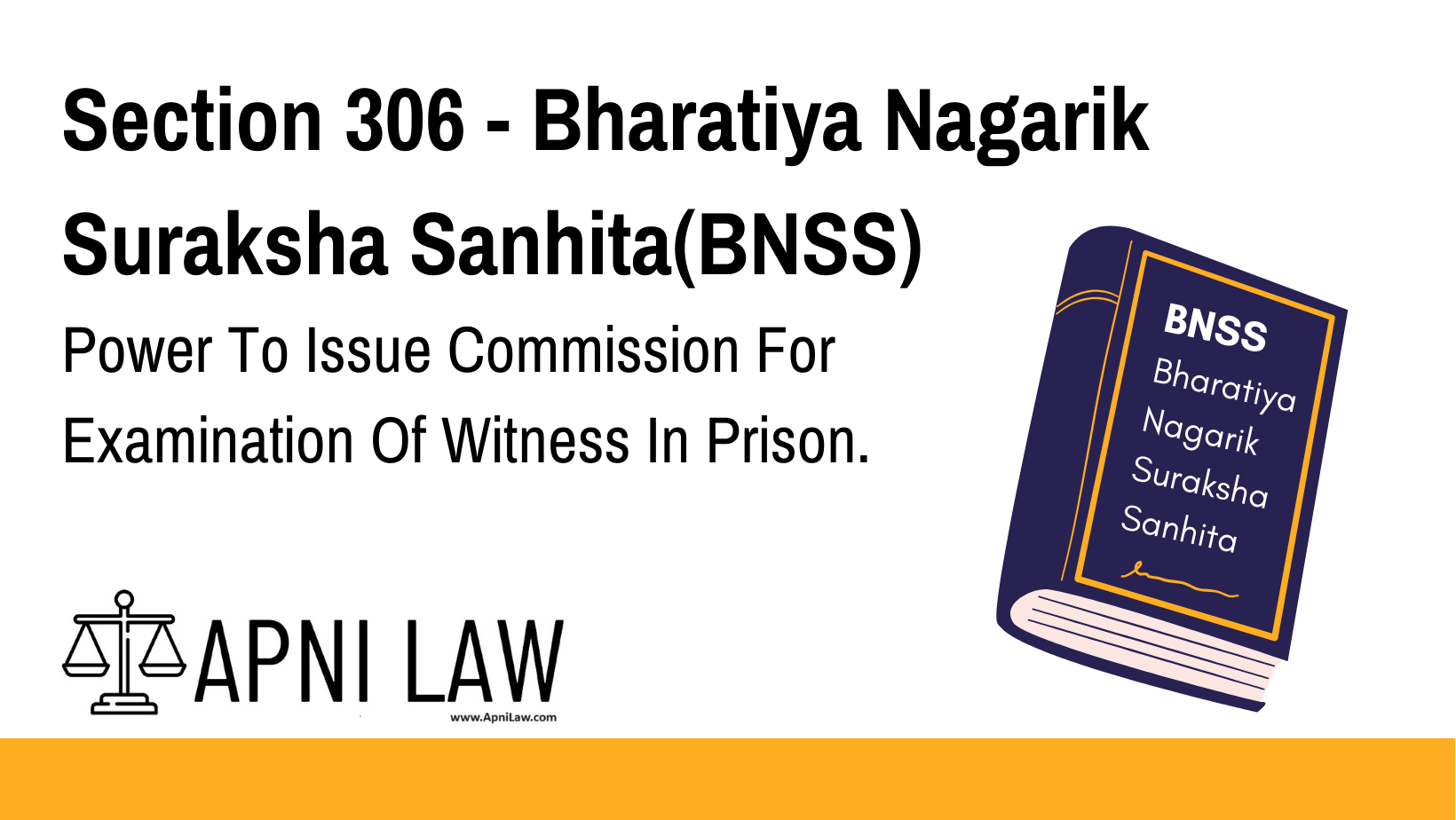Code: Section 306 BNSS
306.
The provisions of this Chapter shall be without prejudice to the power of the Court to issue, under Section 319 , a commission for the examination, as a witness, of any person confined or detained in a prison; and the provisions of Part B of Chapter XXVI shall apply in relation to the examination on commission of any such person in the prison as they apply in relation to the examination on commission of any other person.
Explanation of Section 306 BNSS
Section 306 BNSS clarifies that the procedures outlined in this Chapter do not limit the Court’s authority to issue a commission, under Section 319, for the examination of any prisoner as a witness. In addition, it specifies that the rules and procedures contained in Part B of Chapter XXVI—concerning the examination on commission—will be equally applicable to a prisoner as they are to any other person. This ensures consistency and fairness in the way evidence is obtained from individuals in custody.
Key Points:
-
Unimpeded Authority Under Section 319:
The Court retains its power to issue commissions for examining witnesses even if the witness is confined or detained in a prison. -
Uniform Examination Procedures:
The same procedures for examination on commission set forth in Part B of Chapter XXVI apply to prisoners. This means that a prisoner’s examination will follow the same guidelines, ensuring that their testimony is treated with the same rigor and formality as that of any other witness. -
Ensuring Fairness:
By applying the same rules to all witnesses—regardless of their custody status—the provision safeguards the principles of fairness and equality in judicial proceedings.
Illustration
Example 1: Commission Issued for a Prisoner Witness
In a criminal case, a key witness is currently detained in prison. Recognizing the importance of the testimony, the Court issues a commission under Section 319 for the examination of the prisoner. The examination is conducted in accordance with the procedures outlined in Part B of Chapter XXVI, ensuring that the prisoner’s evidence is collected in the same manner as that of any other witness.
Example 2: Consistency in Examination Procedures
A Court, while handling a case with multiple witnesses, includes a prisoner among them. The Magistrate ensures that the prisoner’s examination is conducted following the same guidelines and standards (as stipulated in Part B of Chapter XXVI) as those applied to witnesses who are not in custody, thereby maintaining uniformity and fairness in the process.
Common Questions and Answers on Section 306 BNSS
1. Does Section 306 affect the Court’s power to issue a commission for a prisoner?
- Answer:
No, Section 306 explicitly states that the provisions of this Chapter do not prejudice the Court’s power under Section 319 to issue a commission for examining any person confined or detained in a prison as a witness.
2. What examination procedures apply to a prisoner examined on commission?
- Answer:
The procedures specified in Part B of Chapter XXVI for examinations on commission apply to a prisoner in the same way as they apply to any other person.
3. Why is it important to have uniform procedures for examining witnesses, including prisoners?
- Answer:
Uniform procedures ensure that all witness evidence is treated equally, maintaining fairness and consistency in judicial proceedings. This helps safeguard the rights of all parties and upholds the integrity of the judicial process.
4. Can the examination of a prisoner on commission differ from that of other witnesses?
- Answer:
No, the provisions of Section 306 require that the examination of a prisoner on commission follow the same rules as those for any other witness, as set forth in Part B of Chapter XXVI.
Conclusion
Section 306 BNSS reinforces that the power of the Court to issue a commission for the examination of a witness is not diminished when the witness is confined or detained in a prison. By applying the same procedural rules contained in Part B of Chapter XXVI to prisoners, this provision ensures that all evidence is collected uniformly and fairly, thus upholding the principles of justice and equality in the judicial process. For further legal insights and detailed guidance on examination procedures and commission practices, visit ApniLaw.








